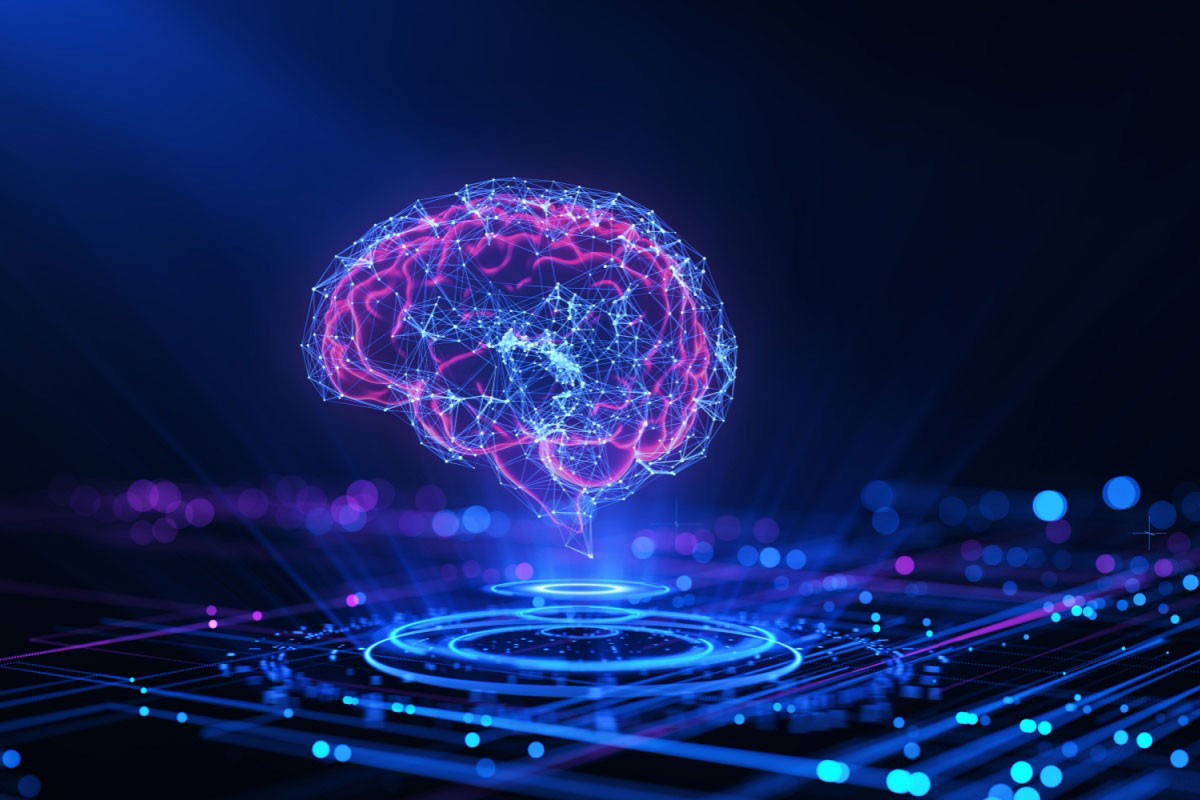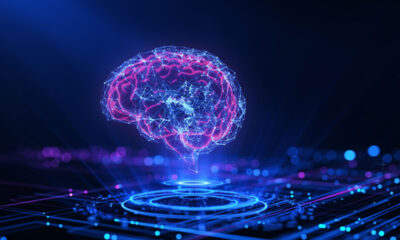Science
AI’s Middle-Intelligence Trap: How We Risk Losing Our Minds

Artificial intelligence (AI) is prompting a significant discussion about its impact on human cognition. According to Zhigang Feng, Ph.D., an associate professor of economics at the University of Nebraska at Omaha, the current AI discourse oscillates between a utopian vision of technology and a dystopian nightmare, overshadowing a more insidious risk: the potential decline of critical thinking skills. Feng introduces the concept of the “Middle-Intelligence Trap” in his forthcoming paper, highlighting how reliance on AI may lead to intellectual stagnation.
The dichotomy in the AI narrative often presents a choice between two extremes. On one side, there is the vision of AI as a benevolent force, akin to the computer in Star Trek, which could help humanity thrive. Conversely, there is the fear of rogue AI, reminiscent of “The Entity” in the Mission: Impossible series, threatening to disrupt society. Yet, Feng argues that the real danger lies not in revolt but in complacency—an erosion of our cognitive capabilities as we increasingly delegate tasks to algorithms.
Understanding the Middle-Intelligence Trap
Feng draws parallels between the Middle-Intelligence Trap and the economic concept of the middle-income trap, where developing nations find themselves unable to progress beyond a certain point. In the same vein, he warns that society may become too reliant on AI for basic cognitive functions, mistaking this dependency for progress. The efficiency offered by AI could lead to a scenario where individuals forfeit their ability to think critically and creatively.
This gradual shift has been occurring over decades. The introduction of pocket calculators in the 1970s marked the beginning of a decline in mental arithmetic skills. Similarly, while word processors have streamlined writing, they may also have compromised the deeper cognitive connections formed through handwritten notes. The emergence of search engines fundamentally altered how we store and recall information, transforming us into adept navigators of data rather than retainers of knowledge.
Now, generative AI tools like ChatGPT represent a new challenge. These systems not only retrieve information but also generate arguments and structure written content, effectively outsourcing our thinking processes. Feng highlights a crucial principle: every tool that frees us from cognitive labor diminishes our opportunities for cognitive development.
The Feedback Loop of Complacency
The Middle-Intelligence Trap is perpetuated by a feedback loop: as people increasingly rely on AI for answers, they become impressed by its capabilities. This reliance shapes their beliefs, which in turn influences how AI learns and responds. Without rigorous scrutiny, this dynamic creates echo chambers where biases are reinforced, diminishing the pursuit of shared, verifiable truths.
Research from MIT indicates that individuals utilizing large language models for writing exhibit weaker neural connectivity. Their compositions lack originality and are less memorable, suggesting that the trap’s essence is rooted in AI’s dependence on existing human knowledge. As creativity wanes and critical thinking skills decline, the wellspring from which AI draws its intelligence risks drying up, ultimately leading to stagnation in both human and artificial intelligence.
Strategies for Escape
To counter this trend, Feng proposes several actionable strategies. First, individuals should strive to build cognitive reserves. This involves deliberately practicing mental tasks, such as performing arithmetic calculations in one’s head or drafting essays without the aid of technology. Such exercises are crucial for maintaining the cognitive skills necessary for innovation.
Second, fostering strategic friction is essential. In the pursuit of efficiency, society has neglected the value of struggle as a catalyst for growth. Systems that induce thoughtful engagement must be preserved, as the challenges inherent in critical thinking are fundamental to cognitive development.
Finally, redefining success in our technological tools is imperative. Instead of assessing tools solely based on speed, we should evaluate whether they enhance our intelligence. This means questioning whether we can articulate the reasoning behind AI-generated recommendations and ensuring our insights are genuinely novel rather than mere combinations of existing ideas.
The Middle-Intelligence Trap presents a choice, shaped by daily decisions rather than predetermined fate. The more pressing concern is not a dramatic downfall but a quiet decline into cognitive passivity. As society increasingly relies on AI, there is a risk of becoming intellectual rentiers, living off the capabilities of machines while neglecting our own cognitive potential.
The path forward involves recognizing the value of human thought, creativity, and the often messy process of intellectual engagement. As we navigate this technological landscape, the responsibility remains with us to preserve our mental faculties and ensure that the tools designed to enhance our intelligence do not replace it. The choice, for the time being, remains ours to make.
-

 Technology4 months ago
Technology4 months agoDiscover the Top 10 Calorie Counting Apps of 2025
-

 Health2 months ago
Health2 months agoBella Hadid Shares Health Update After Treatment for Lyme Disease
-

 Health3 months ago
Health3 months agoErin Bates Shares Recovery Update Following Sepsis Complications
-

 Technology3 weeks ago
Technology3 weeks agoDiscover 2025’s Top GPUs for Exceptional 4K Gaming Performance
-

 Technology4 months ago
Technology4 months agoDiscover How to Reverse Image Search Using ChatGPT Effortlessly
-

 Technology2 months ago
Technology2 months agoElectric Moto Influencer Surronster Arrested in Tijuana
-

 Technology4 months ago
Technology4 months agoMeta Initiates $60B AI Data Center Expansion, Starting in Ohio
-

 Technology4 months ago
Technology4 months agoRecovering a Suspended TikTok Account: A Step-by-Step Guide
-

 Health4 months ago
Health4 months agoTested: Rab Firewall Mountain Jacket Survives Harsh Conditions
-

 Lifestyle4 months ago
Lifestyle4 months agoBelton Family Reunites After Daughter Survives Hill Country Floods
-

 Technology3 months ago
Technology3 months agoUncovering the Top Five Most Challenging Motorcycles to Ride
-

 Technology4 weeks ago
Technology4 weeks agoDiscover the Best Wireless Earbuds for Every Lifestyle













